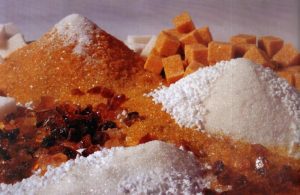
Australia’s sugar industry faces a raft of challenges to its social licence to operate. Health, obesity and sugar consumption are top of mind for many in the community, as are concerns for the environmental impact of sugarcane production
Health and Nutrition
Sugarcane growers and millers recognise that obesity is a serious issue in Australia. As obesity rates continue to climb preventing obesity needs to be a high policy priority. While most health authorities link obesity to an imbalance between energy intake and energy expenditure, the bottom line is many Australians are getting this balance wrong.
We believe sugar can be enjoyed as part of a healthy and active lifestyle. We want people to be able to make informed choices about their consumption and as sugar producers, we do not want our product to cause harm. We are concerned about those in the community who might not understand the risks eating too much, or feel they are unable to make informed choices about how much sugar they consume.
We want to work with government, communities and stakeholders to determine the best ways to provide information to help people make healthy choices when it comes to food and drinks.
Do you have more questions about sugar?
Is sugar…? is a website put together by CANEGROWERS and the Australian Sugar Milling Council to provide clear, accurate and straight-forward answers to these questions and more:
- Is sugar natural?
- Is sugar fattening?
- Is sugar vegan?
- Is sugar addictive? Go to www.sugar.org.au
Environment
The sugar industry is committed to best management practice of soil, water and all other environmental resources and works in partnership with Government to deliver ongoing improvements to the environment, particularly the Great Barrier Reef’s water quality.
We support interventions that balance:
- measurable, scientifically-proven improvements; and the
- on-going viability of the businesses that manage the land and natural resources, including sugar mills and cane farms.
There is a huge variation in geographic and climatic sugarcane growing conditions from the Burdekin Dry Tropics to the Wet Tropics of Cairns and the Tablelands.
Many of our milling council members own and operate large farming operations in each of the reef catchments. They have led the way in terms of best management practice and innovation in their approach to farming. In total, milling companies produce over 2.5 million tonnes of sugarcane from a total farming area of about 30,000 hectares.
Approximately 80% of the area farmed for sugarcane is Smartcane BMP bench-marked and over 33% of cane farm area is accredited.
The Australian Sugar Milling Council, whose membership includes the owners and operators of sugar mills in reef catchments, is very supportive of balanced measures that encourage best management practice in sugarcane farming that will result in improved water quality for the Great Barrier Reef. We believe the commitment to and adoption of ‘best management practices’ in sugarcane farming needs to be acknowledged, encouraged and promoted.
